10 Interesting Facts to Help You Understand Chinese Culture
By: By Candice Song

10 Interesting Facts to Help You Understand Chinese Culture
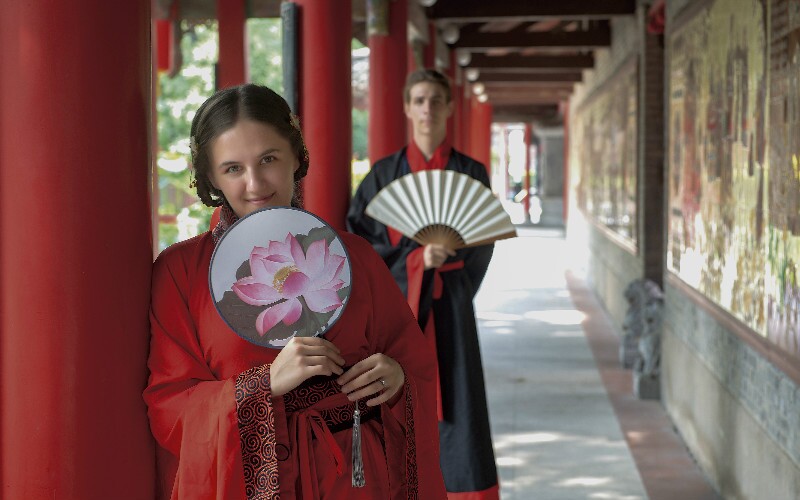
China's culture stretches to the corners of the world through the overseas Chinese population and influence, but it can still seem a very different and mysterious culture. Here are 10 fascinating facts that will help you understand Chinese culture.
1. China is influenced deeply by Confucianism.
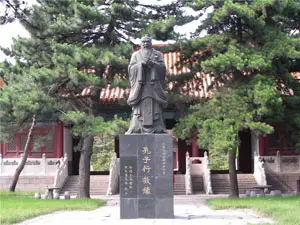
Confucius is revered for teaching doctrines key to Chinese culture.
Confucianism places a heavy emphasis on the importance of respect for rulers, family, and social harmony. It's a national philosophy, but also a religious system of beliefs.
Even over 2,500 years on, Confucian beliefs are still ingrained in mainstream ethics and religion, and this can be seen as you travel throughout China.
2. China is "the Middle Kingdom".
The Chinese for China, Zhōngguó , can be translated as Middle Kingdom, reflecting the ancient Chinese worldview that China is the center of the world.
This led to haughty refusals of foreign trade, then military defeats by Europe, and forced treaties, marking the end of the imperial era.
Chinese people are very proud of their long history and profound culture, which you are likely to notice on your trip when you communicate with Chinese people and visit tourist sites, which often have signs to emphasize their importance in global history.
3. There is great emphasis on family.
Chinese people place great importance on family, and family structure. Marriage, family, and children are all extremely important, and many Chinese families' lives revolve solely around the youngest children.
Grandparents tend to live with their children even after they are married and have their own children, and children are expected to look after their parents once they are married and working. When it is time to celebrate a traditional festival, family gatherings are key.
4. Ping pong is the most popular sport in China.
Ping pong, also known as table tennis, is the most popular amateur sport in China, with approximately 300 million regular ping pong players.
Basketball, volleyball, and badminton are more popular with Chinese youth nowadays, but table tennis remains #1 with the growing older population.
Chairman Mao made ping pong the national sport in the 50s, as a vehicle to recovering national pride and facilitating international relations. This explains why China always does so well in global ping pong tournaments (better than any other country at any sport).
This also explains why many neighborhoods in China have public ping pong tables, as Chinese people love to play sports together outside (especially the elderly).
5. Chinese calligraphy is a revered art form.
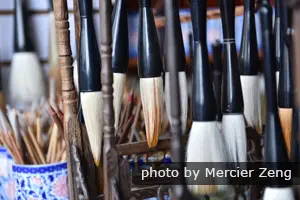
Calligraphy is more than arty writing — it's about discovering the deeper meaning of Chinese characters.
In China, calligraphy itself is a revered and much-practiced traditional art form, that has also led to the development of many other Chinese art forms.
Examples of these include seal carvings, ornate paperweights, and ink stones.
Calligraphy in China has many different categories.
6. Chinese kung fu can be dated back to primeval society .
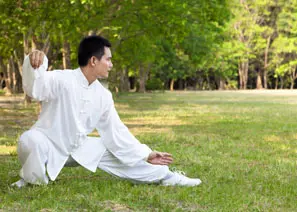
Chinese kung fu can be dated to primeval society, when people used cudgels to fight against wild beasts, which gradually turned into a form of self defence and hunting.
Later on, kung fu evolved to be a kind of martial art, used to train soldiers and improve their morale ahead of wars (at a time when there were various battles fighting over land and philosophies — the Spring and Autumn period (770–476 BC)).
7. Tea can show your social status in China.

Meijiawu Tea Plantation in Hangzhou is the epicenter of Chinese tea culture.
Tea is the national beverage of China, and in traditional Chinese tea culture the way you drink tea, and which tea you drink, can show your social status.
Today, having a pot of tea when visitors come around is the typical way of welcoming said visitors.
Tea ceremonies or visits to tea houses can also be an important way to finish business transactions.
8. The Han are the majority, and officially China has 55 minorities.
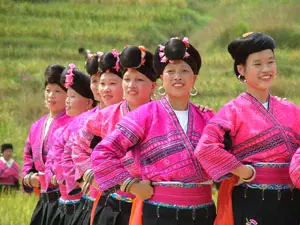
The Chinese government officially recognizes 56 ethnic groups in China, but the Han ethnicity make up the most (an estimated 92 percent of the total Chinese population).
Each ethnic minority has their own social customs, language, culture, dress, language, and more.
Traveling to places like Guangxi or Yunnan will allow you an insight into these different groups, who all have varying cultures.
9. Traditional Chinese festivals are key to Chinese culture.

Mooncakes are traditionally eaten for Mid-Autumn Festival.
Traditional festivals lie somewhat centrally to Chinese culture.
The most important festivals include Spring Festival (also known as Chinese New Year), Lantern Festival, Qingming or Tomb Sweeping Festival, Dragon Boat Festival, and Mid-Autumn Festival.
10. Fortune cookies are not a thing in China — but food really is.
You might be surprised to discover this, but fortune cookies are not a thing in China.
Chinese restaurants in China do not, and have never, served them to their customers.
However, China's is definitely a food culture. The Chinese eat a huge range of food, many of which have symbolic meanings. Foods are often the high point of festivals, and the first thing many Chinese ask is "Have you eaten?".
.
BUZZ NOTE: Comments are subject to the Confucius group RED RULES which can be accessed by clicking on the Confucius group avatar at the top right of this page.
Political comments are off topic and will be deleted.


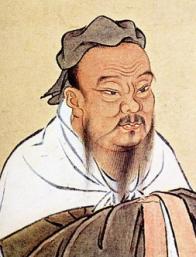

Oh, those moon cakes....
Chinese New Year and Spring Festival start on February 1st this year - determined by the lunar calendar.
the crew working on my daughter's house are chinese. they told me last thursday they were taking hew years off. I told them it wasn't the chinese new year yet. they thought that was pretty funny.
Maybe so, but they should have appreciated that you were aware of their traditional New Year being at another time even if it was meaningful only to their ancestors.
Perhaps they were Chinese Pagans? If they are like western Pagans I believe their Winter holiday would be Yule.
(Or...is there such a things as Chinese Druids?)
Imagine if the Chinese used the Solar calendar instead?
Then y'all would be eating Sun Cakes!
Imagine if the Chinese used the Solar calendar instead?
Then y'all would be eating Sun Cakes!
if Galileo were alive today-- I bet he'd have a thing or two to say about that!!!
I've always known that the Chinese are big on family, but many cultures are. However, when Mao came to power how did he reconcile that about the culture and communism? Especially the one child rule? I know they've eased up on that somewhat in the last few years.
But you know how communism is about the state and not the individual and if you think about it family is individualistic even tho it's communal. I don't think I'm explaining myself very well
One of the things I've found to be a bit strange about present day China is that its Communist. Because from what I know of more traditional Chinese cultural values, they admire successful entrepreneurs-- people who are creative, work hard, and become prosperous that way.
Of course sometimes countries have a political system that is at odds with their cultural values,,,, sometimes because of relatively recent events in that area.
The government here calls its form of government "Communism with Chinese characteristics". In other words their cultural values are taken into account and "people who are creative, work hard" DO "become prosperous that way". Upward mobility is no stranger here, evidenced by the government itself being a meritocracy, a growing middle class and more billionaires than there are billionaire Americans. As for admiring successful entrepreneurs, I had a student whose hero was Jack Ma.
Actually that's even obvious to some degree in the U.S.
In in a few very wealthy neighbourhoods, (mainly on the Left coast and NYC and Washing DC, a lot of the most expensive real estate is being purchased by Chinese buyers...
(And some aren't even lived in most of the time...they're mainly investments, one property of many owned by wealthy Chinese citizens... who often own a few luxury properties in Europe and elsewhere).
Or sometimes they may spend a week or two a year in one of their many properties...and in some cases the sent their kids to college in the U>S. and they spent the academic year in aa luxurioustriple!)...although I think that may be changing.
Well, its been successful,,,given the extreme poverty in China in the not too distant past.
Then you are aware that extreme poverty has now been eradicated in China.
I'm sure there are specifics re: China I don't know about. But I have noticed that for most countries following a specific ideology--- they will stick to that until the leadership want to do something not totally consistent with that philosophy of government.
So-- they do what they want even if it goes against their governing philosophy.
(Then they come up with some sort of bullsh*t explanation to justify it!)
The Soviet Union was a perfect example. They attacked "the horrors of capitalism"-- and how there was extreme wealth, and also extreme poverty. The wealthy exploited the poor, the class struggle. The Communists were going to eliminate all that-- make things fair. Eliminate the extreme class differences.
But what actually happened? They had a big gap between all those peasants living in poverty-- and the Party Leaders who lived a life of luxury. Big (chauffer driven) luxury cars, big luxury apartments in Moscow...and big Dachas (country houses)!
And IIRC, the difference in the lives of the poor masses and elites were at the worst during the most extreme, the "purist" form of Communism...(under Stalin)
Most leaders of countries stick to their promises...except when they don't. (If they are dictatorships...they don't have to be cosistant with their stated philosophy. Don't like it... we will kill you!
An excellent quote from George Bernard Shaw:
Not so sure about "individualistic" when it's Chinese tradition that family and community are more important than self. That happens to be the major reason why China has so much more success in controlling the virus than America does, where individual rights and freedoms are more important (e.g. anti-vaxxers and anti-maskers)
There was a horrid famine when Mao was in power, and it was badly managed by his government, so agriculture, livestock and poultry were wiped out leading to millions starving to death. Because the population was growing beyond the ability to be fed the limitation on births was a necessity. As it turns out, that limitation should have been changed with long before the recent governments did because it is now causing an economic problem of too few paying taxes to support a growing aging retiring population.
This was actually a reply to Trout Giggles, comment number 2. I tend to forget to make my comments a reply when I am replying to what is at the time the last comment on the page.
Thanks, Buzz
I'd have to say that from the time I've spent in China those top 10 are very accurate. After reading them I had to go find my ''chop''.
Now that you found your "chop", do you need any "suey"?
Maybe Chow will be his Mein course?
Nope, I stamped some documents with my chop so I'm good to go.
Was that a Karate Chop (served with the proverbial "Chinese Vegetable" in Black Bean Sauce?
Oh wait...I believe Karate was Japanese, not Chinese?
(Or Hoisin Sauce-- another very fluid form of Asian martial arts)
This type of chop.
Red stamps like that are "chopped" onto damn near every official or legal document in China.
Interesting and helpful information
I had never actually met a Chinese (well, Chinese-American) person until later in life-- there wasn't a single Chinese person in my Elementary School through High School. So I knew little of Chinese culture.
But then two things happened. My cousin who had originally wanted to go to Med school found out about TCM ("Traditional Chinese Medicine") and got schooled in that rather than Western Medicine. Became a highly successful Accupuncturist..We often discuss Chinese Medicine (I'm just a curious person-- haven't formerly studied it). She also a Sinophile, a fairly accomplished Calligraphist, and knows a lot re: Chinese culture.
Then fairly recently I made friends with a group of people who were all Software Engineers, Programmers etc. And almost all of them Were Chinese-American or Indian-Americans (Desis). Getting together with them I learned a lot re: Chinese culture and Indian culture.
BTW Buzz mentioned importance of family. Another thing I've noticed re: that is that the Chinese have a tremendous respect for their elders, and for tradition.
I think it because important traditions-- learned through centuries-- are handed down by elders in each generation. Important lessons learned over centuries are thus kept alive.
(Reminds me in a way of traditional values still held in esteeem by another group of people who, IMO, culturally resemble the Chinese to a large degree).
BTW one thing I've noticed that wasn't mentioned yet. I found it very intriguing at first: it seems a lot of Chinese have a real love of gambling! Apparently in the U.S. there are busloads of Chinese-Americans who go from their homes to the nearest gambling establishments on a regular basis....
I haven't noticed it to be a problem in China. I assume some may travel to Macau for that.